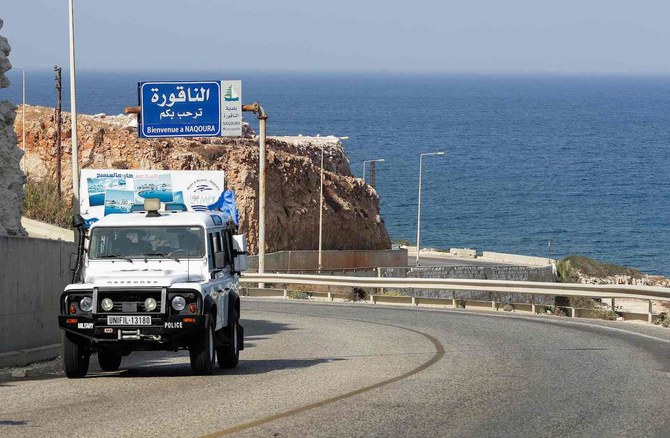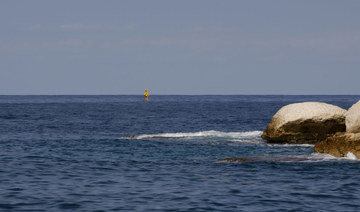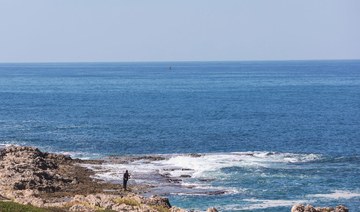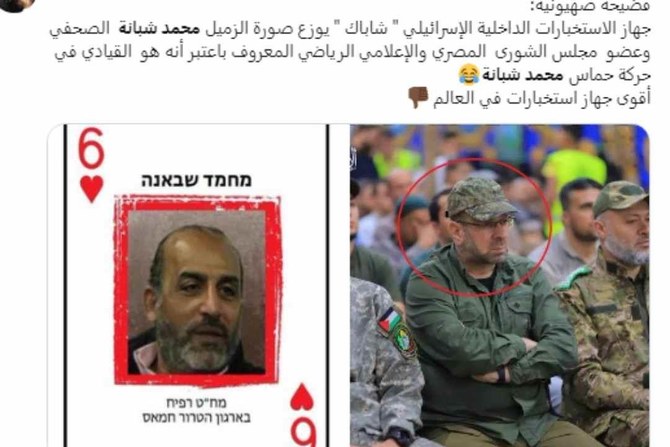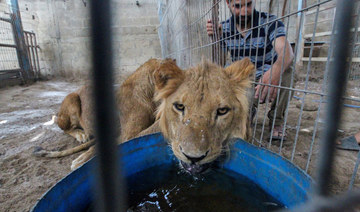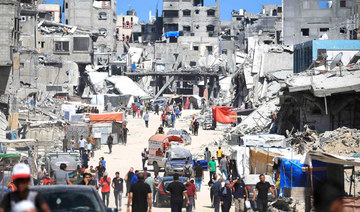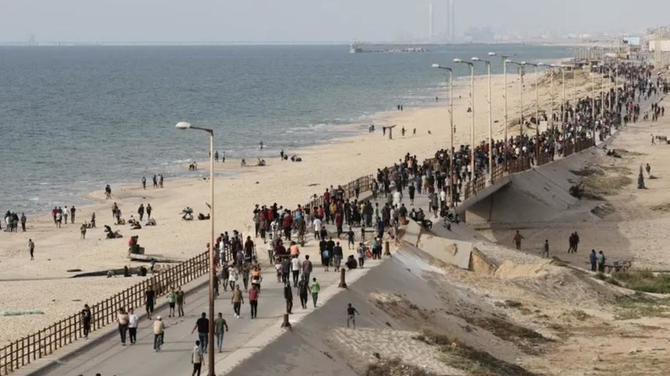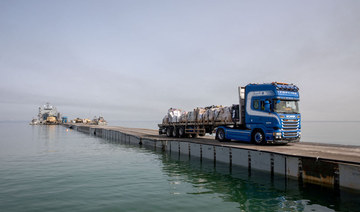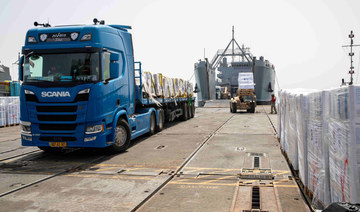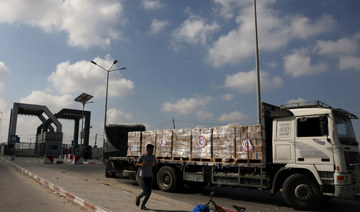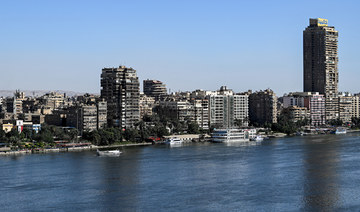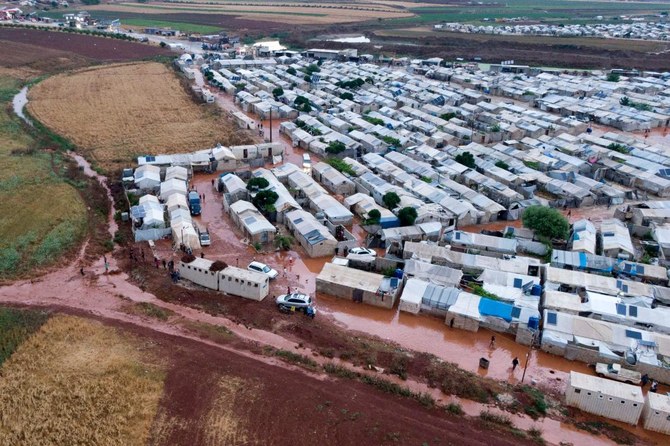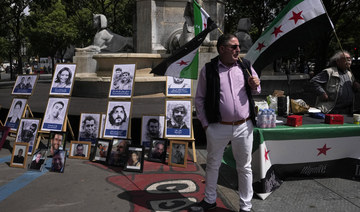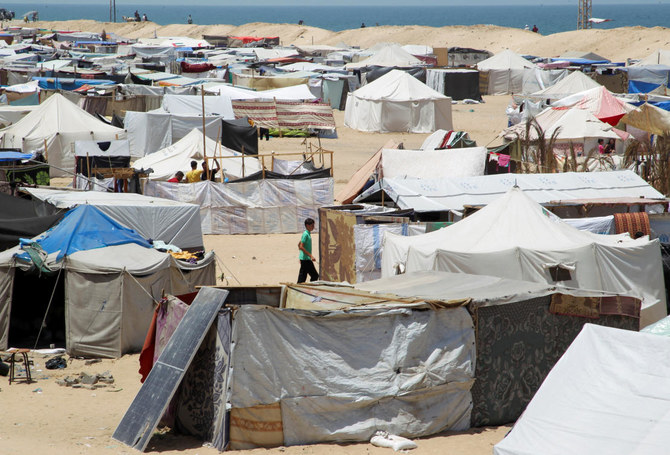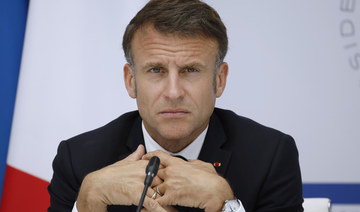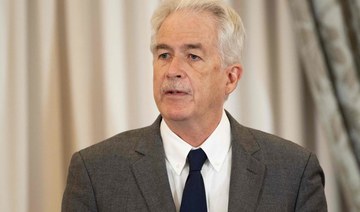BEIRUT: Lebanon and Israel on Tuesday approved the final version of a US proposal for the maritime border demarcation between the two countries.
The Lebanese presidency said it “considers the final version of this offer satisfactory to Lebanon, especially as it meets the Lebanese demands that have been the focus of a long debate during the past months and required effort and long hours of difficult and complex negotiations.”
It added: “The presidency believes that the final formula preserves Lebanon’s rights to its natural wealth, at an important time for the Lebanese.”
Israeli Prime Minister Yair Lapid said: “Lebanon and Israel have reached a historic agreement regarding the demarcation of the maritime borders,” adding that the Israeli Cabinet would meet Wednesday to ratify the agreement.
“The agreement will enhance Israel’s security, inject billions into the Israeli economy, and ensure the stability of our northern borders,” he said.
Lebanon’s Deputy Parliament Speaker Elias Bou Saab, who handled the negotiations with US mediator Amos Hochstein, said the agreement “will secure economic stability in the region.”
The amended draft agreement, which was verbally agreed upon, gives Lebanon the 860 sq. km area delineated by Line 23 — an issue that has been disputed for a decade — as well as revenues from the section that crosses Line 23 from the Qana field to Israel’s exclusive economic zone.
Lebanon has abandoned its demand to hold on to Line 29, which would have given it part of the Karish field, which is now entirely Israel’s.
Former Lebanese MP Fares Souaid told Arab News: “The protection of this agreement rests with the Lebanese army, the constitution and relevant international resolutions 1559, 1701 and 2650. Any attempt by Hezbollah to say that this agreement was reached thanks to its weapons, must be rejected. Hezbollah’s weapons threaten the region and the borders can only be protected by the strength of Lebanese, Arab and international legitimacy.
“The sovereign MPs in parliament should demand to read the agreement and discuss what the point of Hezbollah’s weapons is.”
As Lebanon and Israel approved the agreement, a top-level delegation from TotalEnergies, which will undertake exploration in Lebanese waters, arrived in Beirut for talks with Lebanese officials.
Hochstein visited Paris last month, and in coordination with the French government, discussed with TotalEnergies the issue of financial compensation for Israel from the Qana field, especially as Lebanon refused any direct profit-sharing with its neighbor. As a result, the company will pay compensation from the revenue it obtains from the extracted gas. This matter was mentioned in the US draft proposal for the maritime border demarcation agreement.
Lebanon received the amended draft from Hochstein soon after midnight on Monday, and Bou Saab forwarded it to President Michel Aoun on Tuesday, so that Aoun could conduct the “necessary consultations on this national issue and officially announce Lebanon’s unified national position.”
After his meeting with the president, Bou Saab said: “This agreement secures great economic interests and meets Lebanon’s demands. Contrary to what is rumored, Lebanon achieved its rightful demands, and so did the other party. The atmosphere is very positive, and I can say that we have reached a solution that satisfies both parties.
“Lebanon will get all its rights from the Qana field and Israel can take its compensation from TotalEnergies and not from Lebanon. Lebanon previously signed an agreement with TotalEnergies in 2017. There will be no sharing of gas or wealth between Lebanon and Israel in the Qana field.”
Bou Saab handed over a copy of the draft agreement to Lebanon’s Parliament Speaker Nabih Berri and said after the meeting: “The unified position gave Lebanon strength, and everyone knows that Lebanon is not in a weak position, especially in these negotiations that preserve our sovereignty and our rights.”
He said the final formula was being studied by Berri and caretaker Premier Najib Mikati, and there would be a unified position for Lebanon.
“We will submit the agreement to the UN. This agreement is not between Lebanon and a country that we do not recognize, but rather with the US.”
Mikati said he hoped the agreement would be concluded as soon as possible and thanked Hochstein for his efforts and for leading the negotiation process with precision, professionalism and patience.
“The unified Lebanese position on this issue and Lebanon’s adherence to its rights and demands led to this positive result,” he said.
Mikati also thanked France “for directly contributing to reaching an agreement and overcoming the obstacles that arose during the indirect negotiations.”
After the TotalEnergies delegation met Mikati and the caretaker energy minister, a source said: “The delegation explained that TotalEnergies will try to quickly bring in the necessary ships and mechanisms to start the work by the beginning of 2023.”
The American Task Force on Lebanon welcomed the agreement that demarcates the exclusive economic zones between the two countries.
“This agreement brings hope to the Lebanese people who have suffered through many months of economic despair and social upheaval; and it reminds the global community of the support still needed by those people to recover and survive through what the World Bank has said is the worst economic disaster since the mid-19th century,” ATFL head Ed Gabriel said.
President Joe Biden told Lebanon President Michel Aoun in a telephone call Tuesday that the country's maritime agreement with Israel should “mark a new chapter for Lebanese people” and that the United States would help to resolve issues that may arise under the deal, the White House said in a statement.



